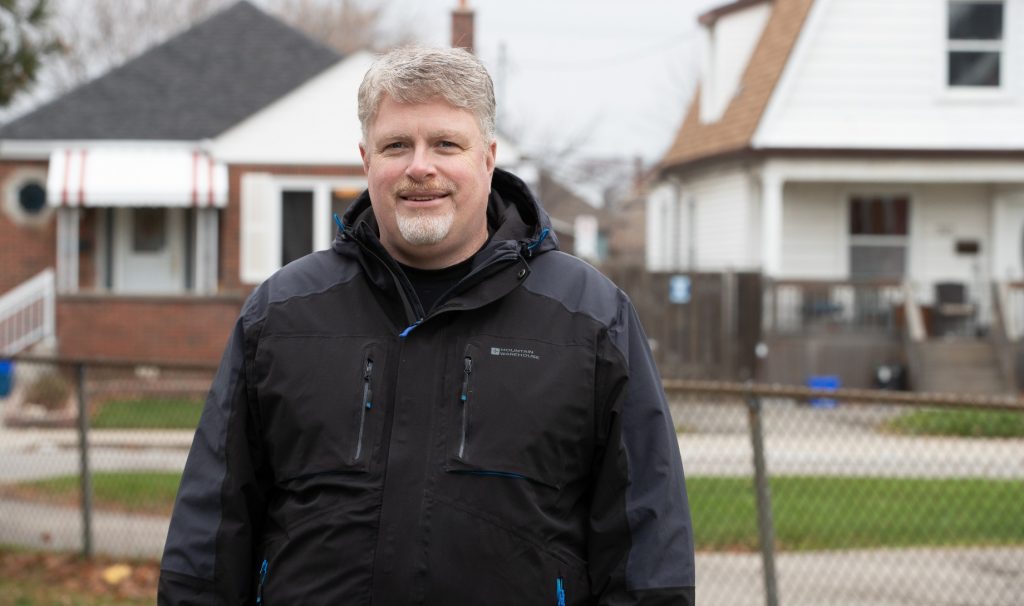Everyone deserves a safe, resilient, sustainable home

Jim Dunn is the director of a research hub that brings together researchers, policy makers and individuals with lived experience from across Canada to tackle the complex issues involved in making safe, healthy housing affordable for all Canadians.
BY Sonia Verma
December 10, 2020
“Everyone deserves a home that they can afford and that meets their needs.”
— Jim Dunn, Director of the McMaster Institute for Health Equity,
Director of the Canadian Housing Evidence Collaborative,
Senator William McMaster Chair of Urban Health Equity
The issue | Adequate housing is a fundamental human right, but not enough people enjoy that right
“Housing is established as an economic and community issue. But let us never forget that housing is also a matter of human health.”
There is a direct link between access to secure, stable housing and health, as Jim Dunn points out. And he should know — his early research in urban health geography helped establish that link clearly. One of his key findings was that people who feel safer and more satisfied with their housing also enjoy improvements to their overall health.
Dunn has also spent more than a decade studying the impact subsidized housing has on the mental health of its residents.
But even knowing the value of and need for safe, stable housing, demand for housing for those who need it the most in our communities is growing past the breaking point — in Canada and elsewhere.
In Canada, about 1.7 million households are in core housing need, meaning they need a home in good repair, of sufficient size for their household and that they can afford to pay for.
More: Jim Dunn’s work exemplifies McMaster’s commitment to advancing the United Nations’ Sustainable Development Goals (SDGs).
The work | Turning research into action
Dunn is the director of the Canadian Housing Evidence Collaborative, which serves as the knowledge mobilization hub of an ambitious new pan-Canadian research network called the Collaborative Housing Research Network. It brings together researchers, policy makers and individuals with lived experience from across Canada to tackle the complex issues involved in making safe, healthy housing affordable for all Canadians.
The federal government, through the Canada Mortgage and Housing Corporation, recently invested $1.135 in CHEC, which will not only support the creation of a robust research ecosystem, it will allow CHEC to bring those findings together and speed up the process of translating into action research from across the Collaborative Housing Research Network.
The network was created to support the National Housing Strategy, a 10-year federal initiative that aims to cut homelessness in half and create housing for those with the greatest need — women and children fleeing abuse, Indigenous youth, people working through mental health conditions or addictions, and others who are marginalized or vulnerable.
Dunn is also director of the McMaster Institute for Health Equity, which promotes interdisciplinary research on the social, economic, cultural, political and bio-physical forces that lead to health inequities.
He has spent more than a decade studying Regent Park, the largest urban redevelopment project in Canadian history. He found clear evidence that people who received new housing units reported greater housing and neighbourhood satisfaction, improved feelings of safety and security, and also enjoyed improvements to their overall health.
The impact | Sustainable solutions for healthier communities
Dunn has worked with a number of industry, community and government partners, including local non-profit housing organization InDwell, which builds affordable housing for people with mental health or addiction problems.
“Having a safe home that you can afford not only creates better health outcomes for individuals, it helps society: Children raised in these homes have better access to education and opportunities, residents who no longer carry the weight of worry about having a place to live are able to contribute to a sustainable, prosperous community,” he says.
“And, frankly, a truly sustainable community is one that looks after its most vulnerable people and ensures that those with the greatest need have the resources and support to live a whole and healthy and productive life.”
Lessons to share | Everyone is a housing researcher
Part of building housing research capacity involves looking at the matter from every angle. And Dunn, in addition to being an urban health geographer, is an evangelist for interdisciplinary work.
He has a long history of forging connections with experts across disciplines — In addition to its five research nodes around the country, CHEC is already working with political scientists and economists, as well as with Statistics Canada.
“You want sustainable housing? You need an engineer. You want to work on policy? Talk to someone with experience in policy and politics.And you need scientists and architects, economists and psychologists and physicians and data experts …” Dunn continues checking words off on his fingers.
“Everyone can be a housing researcher. I think everyone should.”
Jim Dunn’s work exemplifies McMaster’s commitment to advancing the United Nations’ Sustainable Development Goals (SDGs). Learn more about the best ways to align research with the UN’s SDGs.


